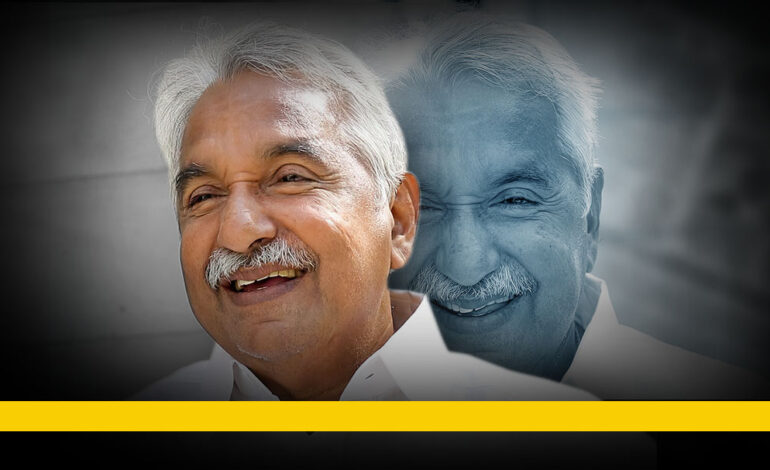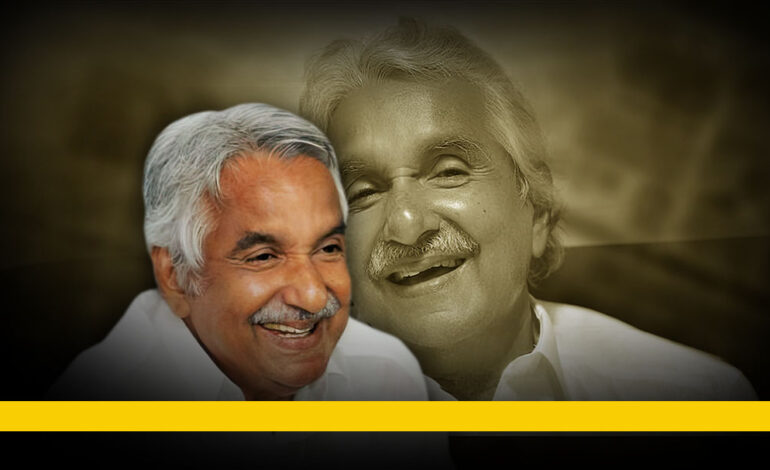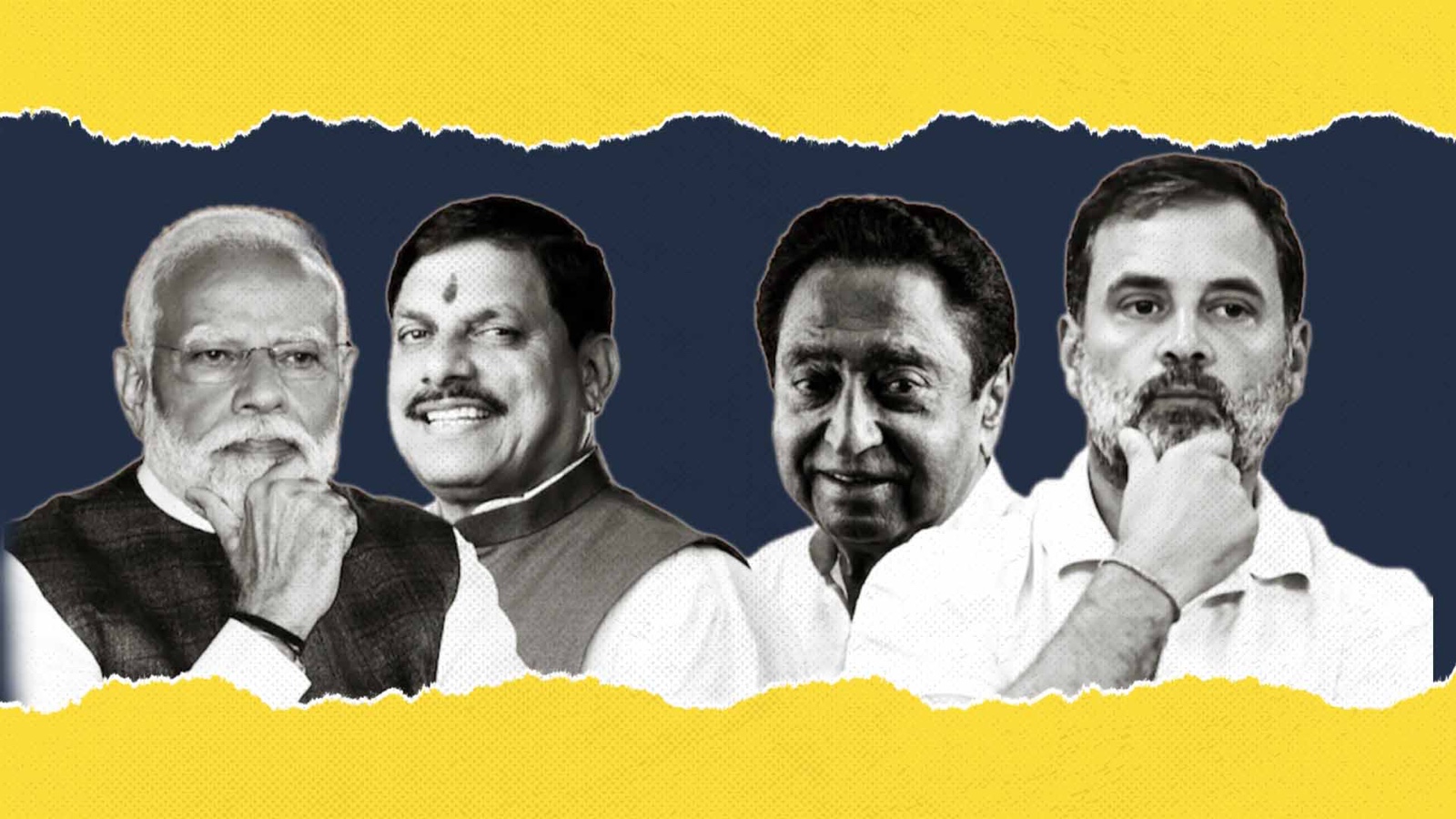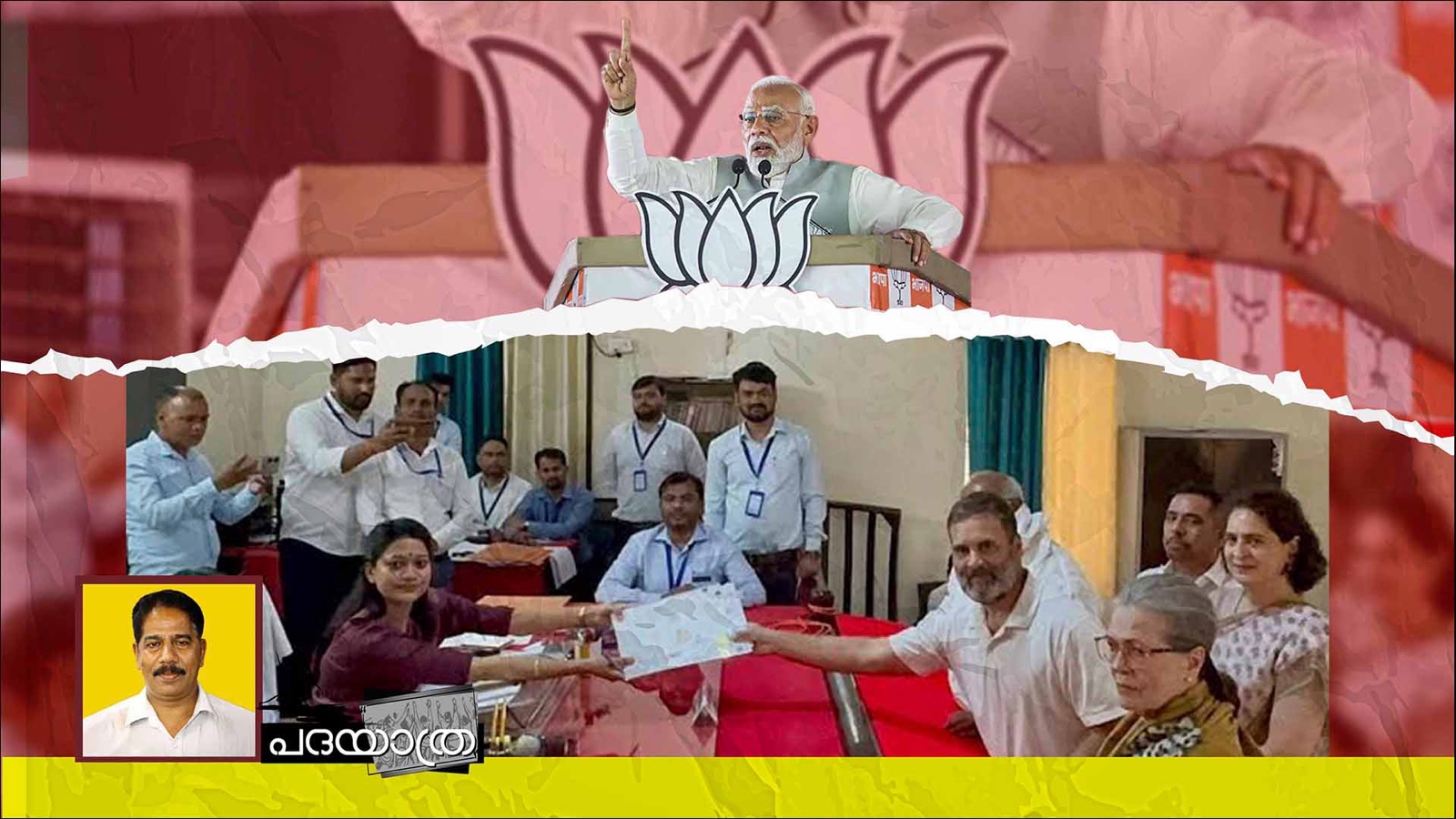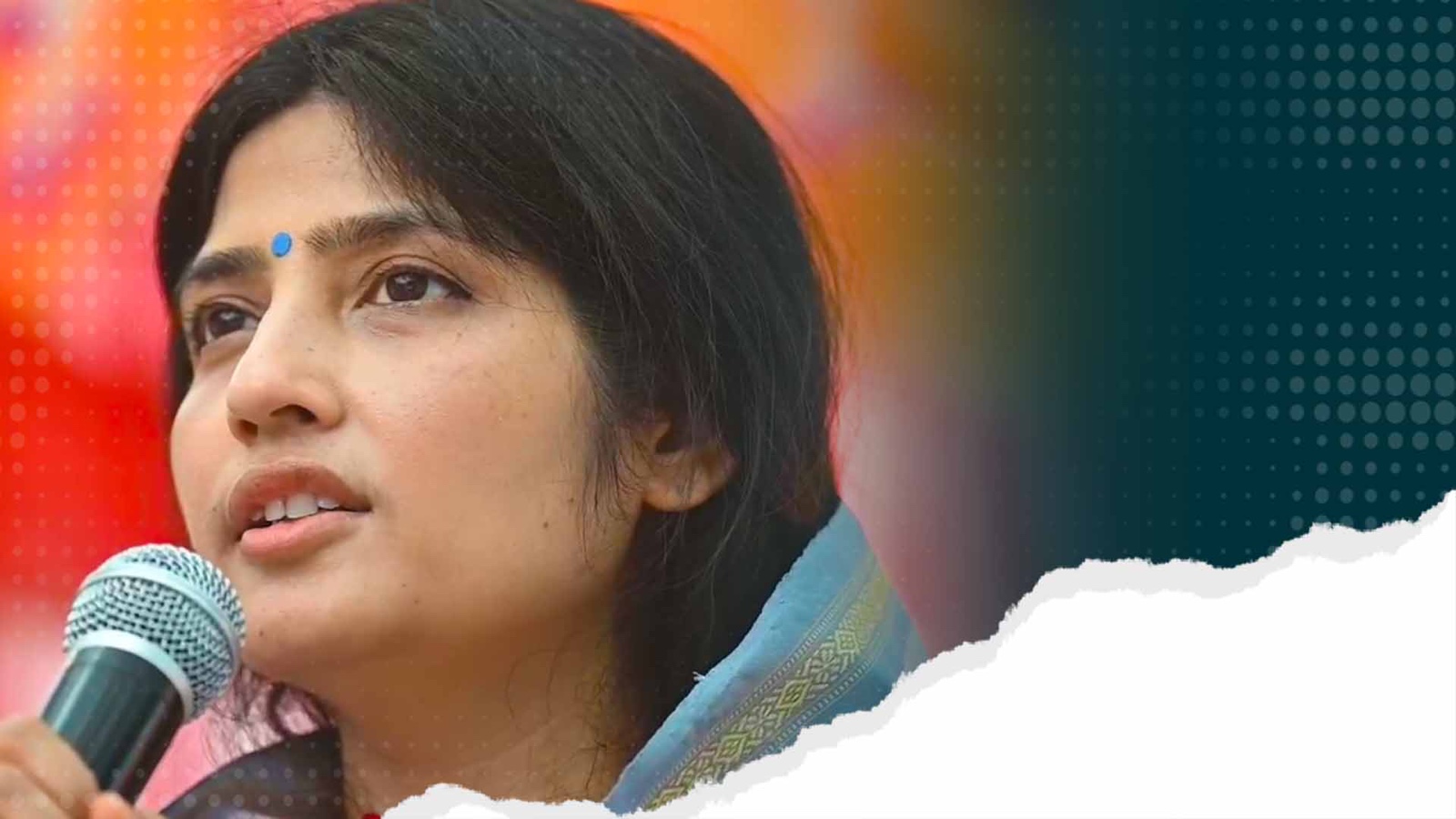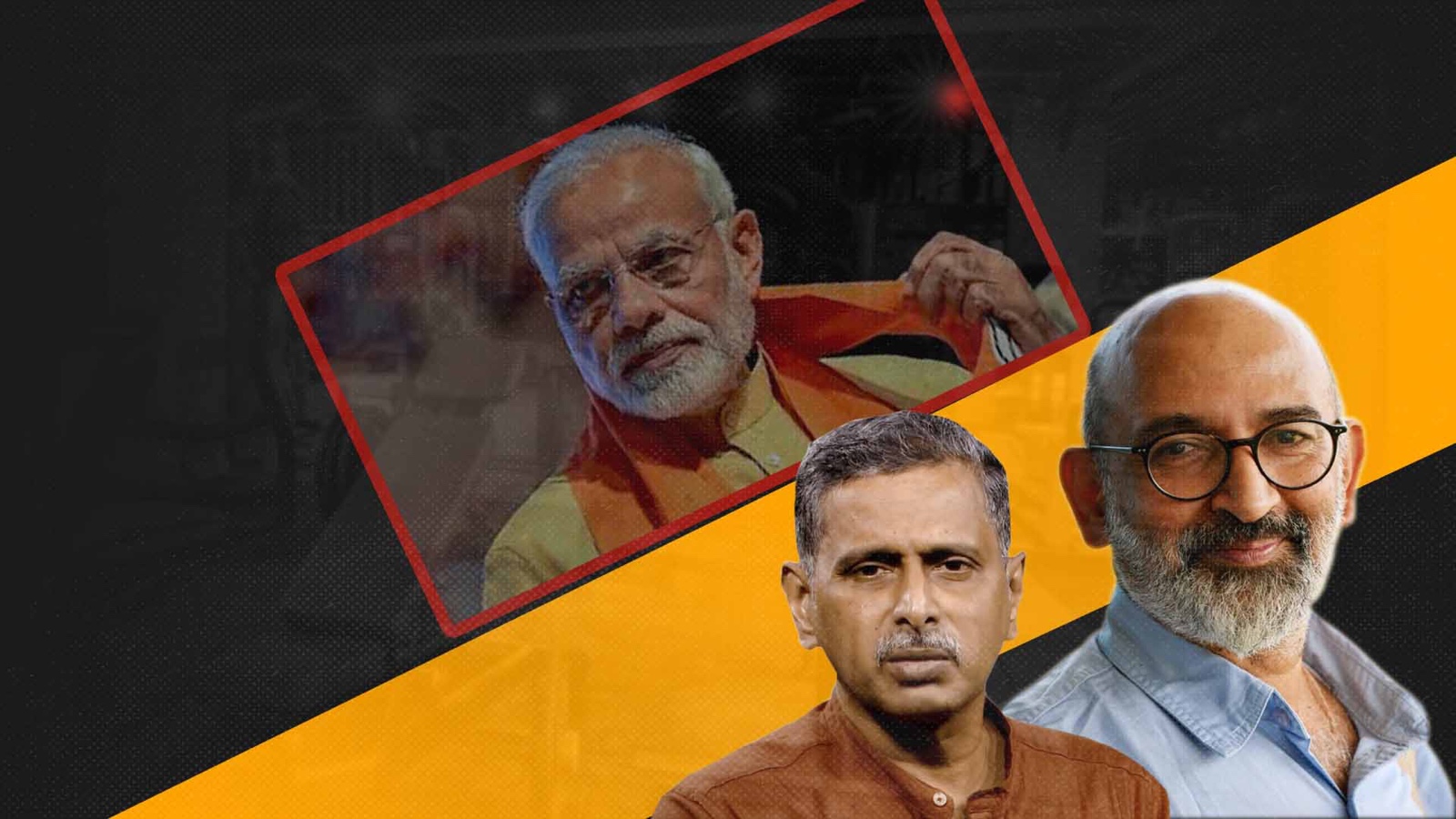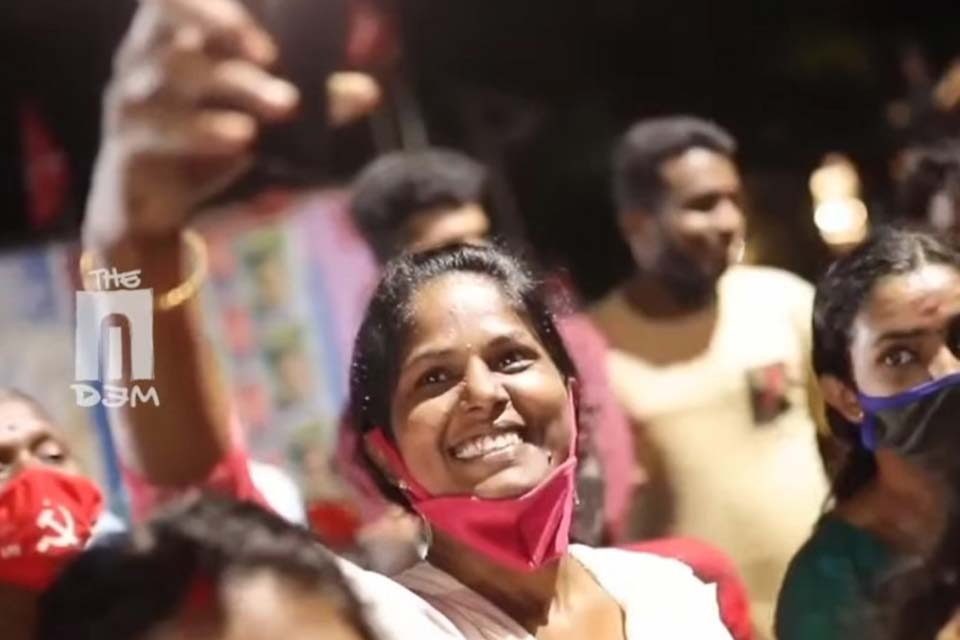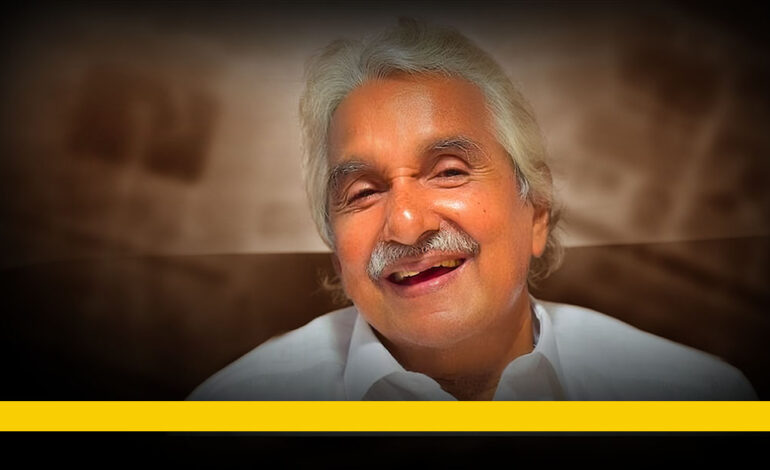
In 2019, a few weeks after the Indian National Congress suffered yet another resounding defeat at the hands of the Narendra Modi-led Bharatiya Janata Party ( BJP), a small group of Delhi-based journalists, including this writer, had an occasion to interact with Rahul Gandhi in the precincts of the Congress Parliamentary Party office within the Parliament Building. During the brief, impromptu interaction, Rahul Gandhi said that he and the Congress had worked hard and to the best of their abilities but were found wanting in making the big change.
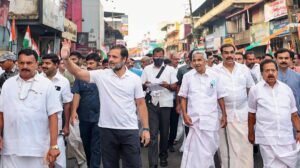
Hearing this, I came up with a totally unsolicited advice. “Bring Oomen Chandy to Delhi on a special organisational post. Give him authority to prod your line of leaders in the organisational structure across the country. He will make your units across the country spring to a new life. He himself will not sleep. And he will not let other leaders in your party sleep too.” Rahul Gandhi, just smiled and moved on.
Later, I sent word to Chandy through one of his close associates, about my “message” to Rahul Gandhi. The associate reported back saying that Chandy too responded to my suggestion with a smile, but had later added that he wished he could actually live up to my impression about him, if given a chance. Apparently, he used to talk about this “organisational possibility at the Congress centre” from time to time. “In a sense, he had taken up this as a promise to himself”, said the associate of Chandy. But several factors, including Chandy’s ill-health, prevented him fulfilling this promise in the past four years.

Political observers who have observed the organisational abilities of the former Kerala Chief Minister would agree with my assessment. There was little doubt about his connect with the people. Also that 24×7 activity characterised Oomen Chandy’s political life throughout his nearly six-decade long career. Fellow politicians, political observers and journalists have often been dumb founded by Chandy’s capacity to put in inhumanly long hours of work.
Senior politicians belonging to different parties, including his arch rivals in the Communist Party of India (Marxist) have seen how he could be on his feet for almost as long as 10 hours, meeting and interacting with people.
A fellow journalist recounts often an unbelievable official encounter with Chandy. Chandy was Chief Minister at that time and the journalist, an elected leader of a journalists’ union. The latter had an important issue to discuss with the Chief Minister. The union was building an office in one of the Kerala districts and had to get some official clearances. To an official request for an appointment, the Chief Minister’s office replied that the meeting was fixed for 4 a.m. in a train reaching Shoranur Junction then. Looking at the time and place of appointment, the journalist and his colleagues had surmised that the meeting would not happen. The Chief Minister would most probably be asleep at that time, they thought. However, they decided to take a chance and reached the station. The train reached the railway station and the man who opened the train’s door was a fully awake and bright looking Chief Minister himself. The journalists had a fruitful discussion with Chandy in the train. Later, the union’s project came to a smooth completion.
There were several leaders in the Congress as well as many regional parties in northern India such as the Samajwadi Party (SP), the Rashtriya Janata Dal (RJD) and the Janata Dal (United) who knew about this passionate working style of Chandy. Old timers in the Uttar Pradesh Congress, such as Ram Kripal Singh and Pramod Tiwari, used to term it “Chandy’s personal value addition to a long-standing Kerala stamp in Congress politics”. They remember how, when Indira Gandhi was leading the party, young leaders from Kerala, such as A.K. Antony, Vayalar Ravi and Oomen Chandy had occupied important positions in the central bodies of the party. They viewed it as a period of creativity in the grand old party.
In the view of these leaders, it was Chandy and K.C. Venugopal, organisational secretrary in the current Congress Working Committee (CWC), who essentially represented this Kerala stamp in national politics in contemporary times. Interestingly, Venugopal considers himself a sort of protege of Chandy. Both Singh and Tiwari had pointed out to The AIDEM that Chandy’s political personality had particularly captured, the attention and imagination of the political class as a whole, particularty Congress functionaries, in different parts of India during the two terms when he was Chief Minister of Kerala.
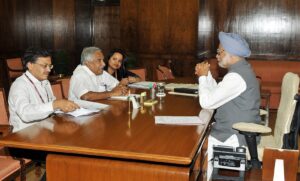
This began right from his first tenure as Chief Minister in 2004. The very fact that he was chosen to replace somebody like Antony after the rout of the Congress in Kerala in the 2004 Lok Sabha elections had evoked interest across the country. This had grown steadily over his first tenure as Chief Minister until 2006. “It rose to greater heights during the, second tenure, which began in 2011,” Singh said.
Chandy’s tireless physical dynamism and energy were often cited as examples of the new-age political quotients of high value. Even politicians like Akhilesh Yadav of the Samajwadi Party, who stands at a considerable distance from the Congress in political and ideological terms have commented on this aspect to me personally.
At the level of larger politics, however, there have been questions on Chandy’s ideological orientation and commitment. I had myself raised a pointed question on this when he was Chief Minister. Chandy had responded by stating that he did not believe in categorisations such as Left, Right or Centre and his basic ideology was welfare of the people and overall development. Many journalists and observers who had heard this interaction immediately categorised it as mindless generalisation by the leader.
Even in the midst of this criticism, there was also an acceptance that at the policy level, there were many things that Chandy had done as Chief Minister which had the potential to evolve into more ideologically coherent political plan. Indeed, there were many things that militated against any form of ideological orientation.
There is a general impression that the present-day Kerala, by and large, does not produce the kind of mature politicians that the larger society of the State deserves. This is a view shared even by those academicians and analysts who have showered praise on the Kerala model of development. Clearly, there is a need for greater application, enhanced creativity, and better innovation to make Kerala adapt itself to the new, emerging world.
Perhaps, Oomen Chandy’s passing away would trigger a broader and more involved debate on this issue in the days to come. Even as one mulls on this possibility, there can be little denying that Chandy had a very high application quotient and that he had brought back some attention to the Kerala stamp in Congress politics at the national level.
In such a context, the unkept promise that he made to himself on bringing more vigour into the Congress at the national level would pain a large number of his followers and friends.


